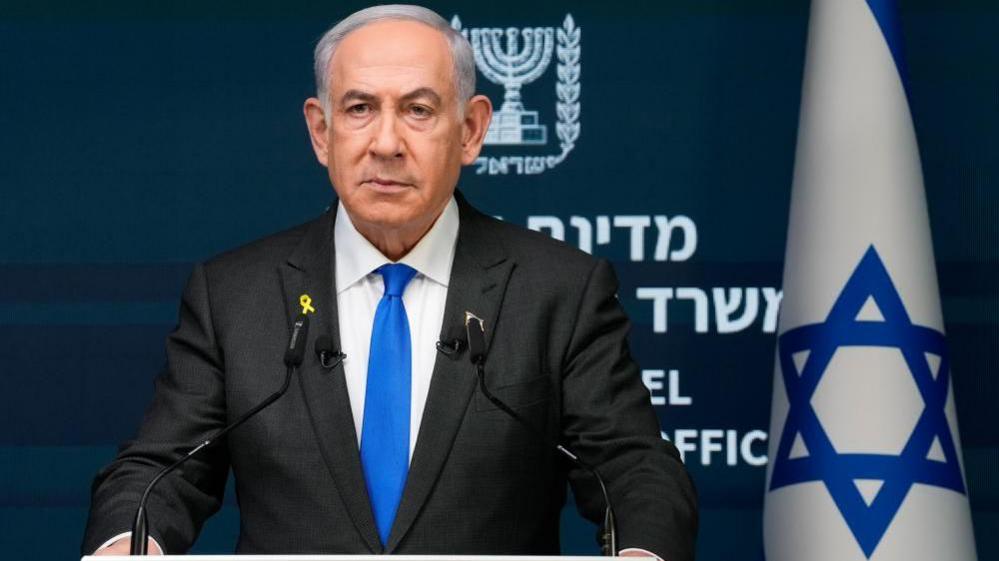Israel vows 'heavy price' for Houthi missile strike

Benjamin Netanyahu said the strike showed that Israel was fighting a "multi-front battle" from its enemies
- Published
Israeli Prime Minister Benjamin Netanyahu has said Yemen's Houthis will pay a "heavy price" after a missile fired by the group landed in central Israel.
The Israeli military said the missile landed in an uninhabited area early on Sunday, but that shrapnel indicated air defence systems had failed to destroy it before it entered Israeli airspace.
It added that it was investigating how the missile was able to reach so far into Israeli territory.
The strike marks the first time a missile fired by the group has reached central Israel, which is around 2,000km (1,240 miles) from Yemen.
The Israel Defense Forces (IDF) said there had been repeated attempts to shoot the missile down on Sunday but that it most likely fragmented in mid-air.
The Houthis claimed the operation used a new type of hypersonic missile, which may help explain the failure of efforts to intercept it.
They are an armed group that seized much of Yemen in the countryÔÇÖs ongoing civil war and have declared themselves part of the Iran-led "axis of resistance" against Israel, the US, and the wider West.
The Houthis said in a statement that Sunday's attack was carried out in solidarity with the Palestinians and that Israel should expect more ahead of the first anniversary of the 7 October attacks.
Missile fragments landed at a railway station in the city of Modiin, causing some damage, and in open ground near Israel's main international airport on the outskirts of Tel Aviv.
The damage is believed to have been caused by Israel's own interceptor missiles.
- Published19 July
- Published12 September
- Published22 August
Netanyahu said the strike showed that Israel was in a "multi-front battle against Iran's axis of evil that strives to destroy us".
"[The Houthis] should have known by now that we exact a heavy price for any attempt to harm us," he said.
"Anyone who attacks us will not escape from our arms.
"Hamas is already learning this in our determined action that will lead to its destruction and the release of all of our hostages."
Israeli forces launched a campaign to destroy Hamas following the 7 October attacks, which saw around 1,200 people killed and another 251 taken to Gaza as hostages.
More than 41,206 people have been killed in Gaza since the campaign began, according to the Hamas-run health ministry.
This is not the first time the Houthis have attacked Israel.
In July, one man was killed and eight people were injured after a Houthi drone landed in Tel Aviv.
Previously, almost all Houthi missiles and drones fired towards Israel had been intercepted and none were known to have reached Tel Aviv.
In response, Israeli jets attacked the city of Hodeidah in Yemen, causing a huge fire which engulfed one of the countryÔÇÖs most important oil storage facilities.